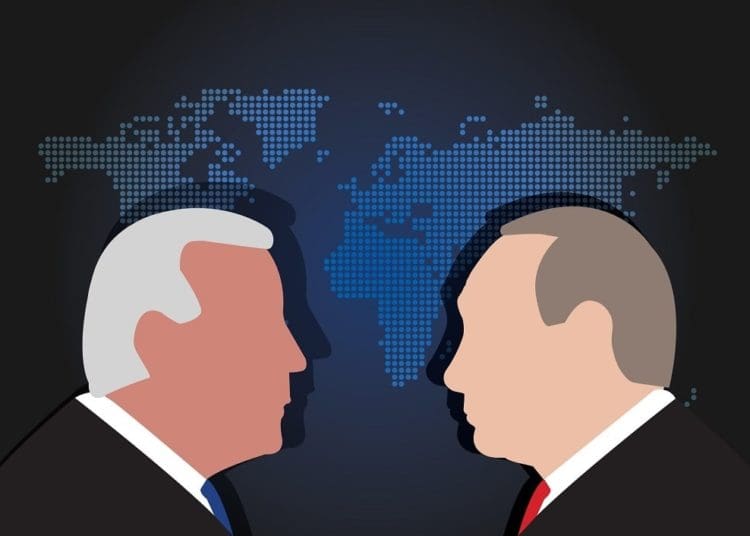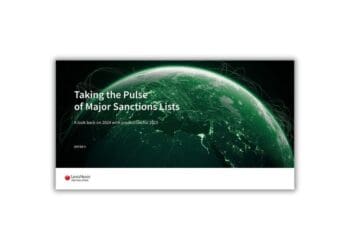The Biden administration has imposed a number of trade sanctions against Russian organizations and individuals, but the impact of the move remains unclear.
The Biden Administration announced new and significant trade sanctions against Russia. The action was long expected, given the Biden Administration’s criticism of Russia, and it was a comprehensive response to Russia’s interference in the 2020 U.S. election, its SolarWinds cyberattack and its ongoing occupation of Crimea and threatening addition of troops along the Ukraine border.
President Biden issued a new Executive Order, No. 13848, “Targeting the Harmful Foreign Activities of the Russian Government,” authorizing a broad range of sanctions authorities in response to Russian activities designed to undermine free and fair democratic elections; to engage in and facilitate malicious cyber activities against the United States; use transnational corruption to influence foreign governments; pursue extraterritorial activities targeting dissidents or journalists; and violate well-established principles of international law.
The White House also took steps to expel 10 Russian diplomats in Washington, including Russian intelligence representatives for their roles in the cyber hack and election meddling. President Biden spoke to Russian President Vladimir Putin to preview the actions.
The Treasury Department issued specific sanctions under the new Executive Authority. The new sanctions bar U.S. financial institutions from participating in the primary market for bonds issued by Russia’s central bank and other financial institutions. The impact of the prohibition is unclear given that the U.S. is not a large purchaser of Russian bonds.
Further Reading: 5 Steps to Implement a Sanctions Compliance Program
The Treasury Department also sanctioned six Russian technology companies that support the Russian intelligence cyber program, along with 32 entities and individuals. Another eight individuals were sanctioned for their role in the ongoing Crimea occupation.
The White House also named the Russian Foreign Intelligence Service (aka SVR) as the primary actor for the SolarWinds hack. The White House emphasized that further sanctions may be imposed in the future.
The sanctioned individuals include: Alexi Gromov, First Deputy Chief of Staff, who was previously designated under Executive Order 13661; the Federal Security Service (FSB); the main Intelligence Directorate (GRU); the Foreign Intelligence Service (SVR); SouthFront, an online disinformation site connected to the FSB; Newsfront, a Crimea-based disinformation outlet that worked with the FSB; the Strategic Culture Foundation (SCF), on online journal registered in Russia that is directed by SVR; InfoRos, a news agency run by the GRU; and Denis Tyurin, a leader at InfoRos.
The Treasury Department adopted further sanctions against Yevgeniy Prigozhin, a Russian financier of the Internet Research Agency (IRA), the Russian troll farm that OFAC previously sanctioned in 2018; Alexander Malkevich and his company, the Foundation for National Values Protection (FZNC), which have facilitated Progozhin’s global influence operations; The Association for Free Research and International Cooperation (AFRIC); International Anticrisis Center, and Russian nationals Petr Byschkov, Yulia Afanasyeva and Taras Pribyshin, who have facilitated Prigozhin’s malign operations in Africa and Europe.
In addition, the Treasury Department designated several companies associated with Prigozhin and his attempts to evade sanctions and disguise his ownership interests, including Trans Logistik and Yunidzhet, Artem Stepanov, Maria Zueva, Kirill Scherbakov and Alkon.
Finally, the Treasury Department designated Konstantin Kilimnik, a Russian and Ukrainian political consultant, associated with Russian Intelligence Services. Kilimnik surfaced during the Mueller investigation for playing a key role as a political intermediary between the Trump campaign and Russia.
This article was republished with permission from Michael Volkov’s blog, Corruption, Crime & Compliance.



 Michael Volkov is the CEO of The Volkov Law Group LLC, where he provides compliance, internal investigation and white collar defense services. He can be reached at
Michael Volkov is the CEO of The Volkov Law Group LLC, where he provides compliance, internal investigation and white collar defense services. He can be reached at 








